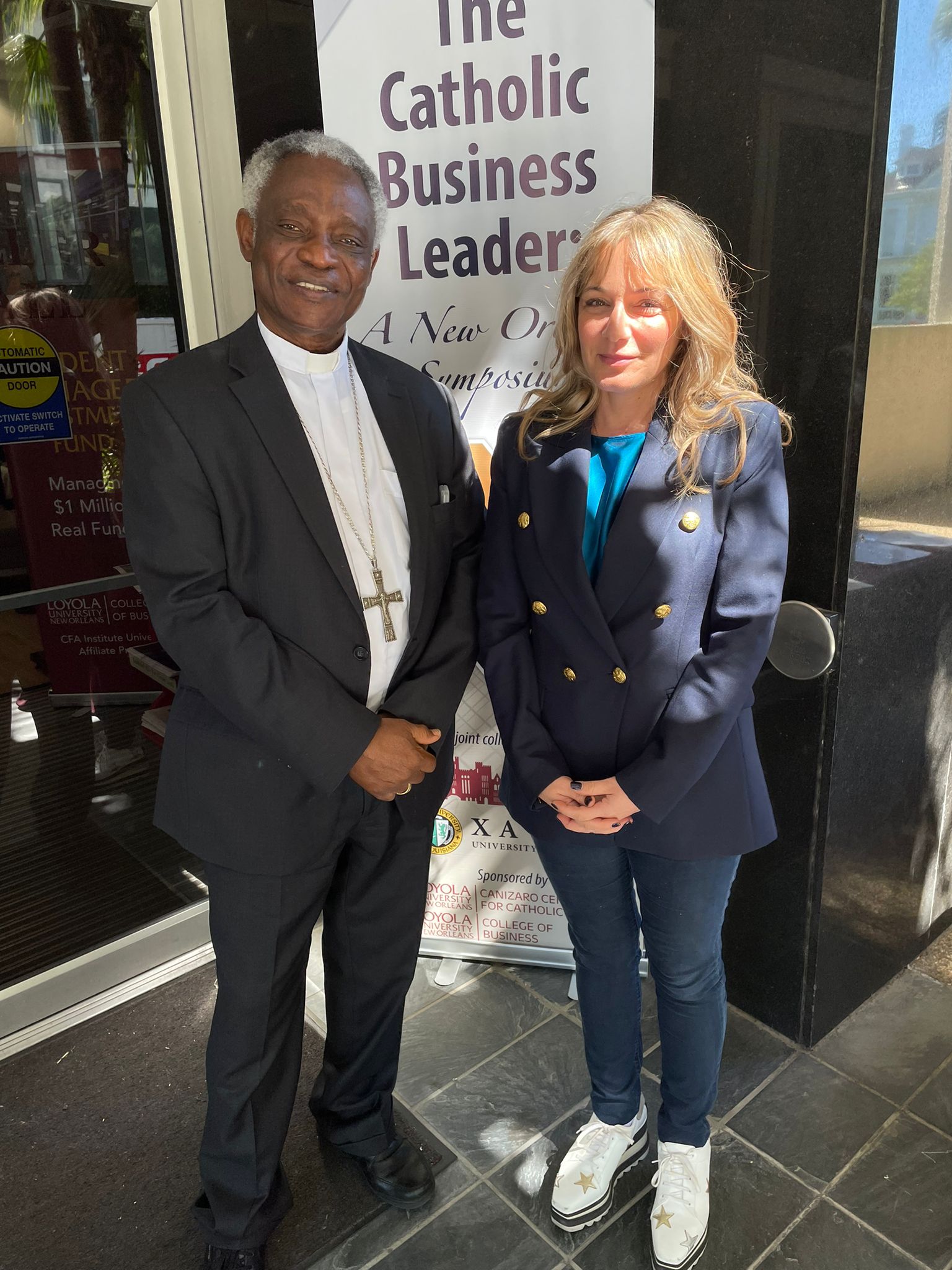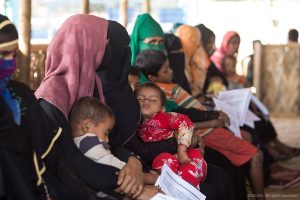
On September 30th, I was invited to take part in the Catholic Business Leader Symposium organized by Loyola University of New Orleans and Xavier University of Louisiana. The conference, which was attended by key representatives of the Catholic Church and important academics, was dedicated to the role of the Church for entrepreneurs. The presence of the Cardinal Peter Turkson and the important words he shared during the meeting, provided significant value in addressing key topics within the Catholic world. Talking about business, entrepreneurship and the humanitarian field seems almost taboo, both inside and outside the Christian world, as such fields often seem incompatible. Finally, the symposium highlighted the importance of conducting discussions with people who have different experiences, ideas and backgrounds.
In the three days dedicated to the conference, the participants held discussions around de-stigmatising business and social welfare, highlighting the positive value of business. We took inspiration from the most recent and important declarations and publications of the Catholic Church, from “The vocation of the business leader. A reflection” to the Encyclicals “Laudato Si” and “Fratelli Tutti“, the meeting has highlighted the importance of what has been called the “entrepreneurial vocation” in the context of today’s globalized world for the application and dissemination of the fundamental principles of the Social Doctrine of the Church.
“From everyone who has been given much, much will be demanded; and from the one who has been entrusted with much, much more will be asked” (Lk 12:48). This is the fundamental principle from which the debate began, we then touched on the main duties which, according to the Church, must inspire the work of every man and woman who deals with business. We need to satisfy the needs of the world with goods that can be useful for any positive reasons, to be inspired by the spirit of solidarity, to have at heart the needs of the most vulnerable people, acting with respect for human dignity, the principle of subsidiarity and sustainable participation. According to the Church, those who, in their economic and work activities, are inspired by ethical and social principles, can make an important active contribution to the common good of the world.
Christian values are important principles in the current complicated global context, where humanitarian crises know no respite and where exclusion and inequalities become increasingly unbridgeable, while wars and climate change producing thousands of victims and displaced persons.
My speech, as Director and co-founder of MOAS, was a direct testimony, a case study, of what entrepreneurs and business people can do to alleviate the suffering of migrant people around the world. When my family and I felt the weight of our moral and ethical responsibility to act and to take care of those who crossed in search of safety, risking their lives that stretch of sea in which we found ourselves, we could not stand still. The foundation of MOAS has changed our lives and has made our resources, our skills and all our energy, available to others.
Since then, we have become one big family, and together with our supporters, donors and staff, we have taken care of thousands of children, women and men in danger in the Mediterranean Sea and the Aegean, of people fleeing persecution in Myanmar with medical clinics and with courses for disaster risk reduction. In Yemen and Somalia, we deliver nutritional supplements and life-saving medicines for children affected by acute malnutrition, we provide emergency medical care and pharmaceutical aid in Ukraine and we have developed innovative projects for migrant people in Malta. We advocate for #SafeAndLegalRoutes so that people are not forced to endanger their lives in search of a better future, fleeing war, poverty, torture and abuse. We believe that it’s possible to reach the host country safely, without ending up in the hands of human traffickers.
Together we have achieved great goals, alleviated suffering and saved the lives of many people, we have given them a voice and a chance that they would not have had otherwise and I am happy to have been invited to share our story so that it can be of inspiration for all those who have the resources and tools to be able to reach out to those who need it most.
I would not have had the opportunity to take part in this important symposium if I had not been lucky enough to meet Father Nathan O’Halloran, and later Doctor Jose Bautista. My thanks also goes to the Dean of Loyola’s College of Business, Dr. Michael J. Naughton, who coordinated the panel, and to the Rev. Dr. Robert Gahl, to Peter P. Finney Jr. and all the speakers I met during the event.
#NoOneIsSavedAlone



